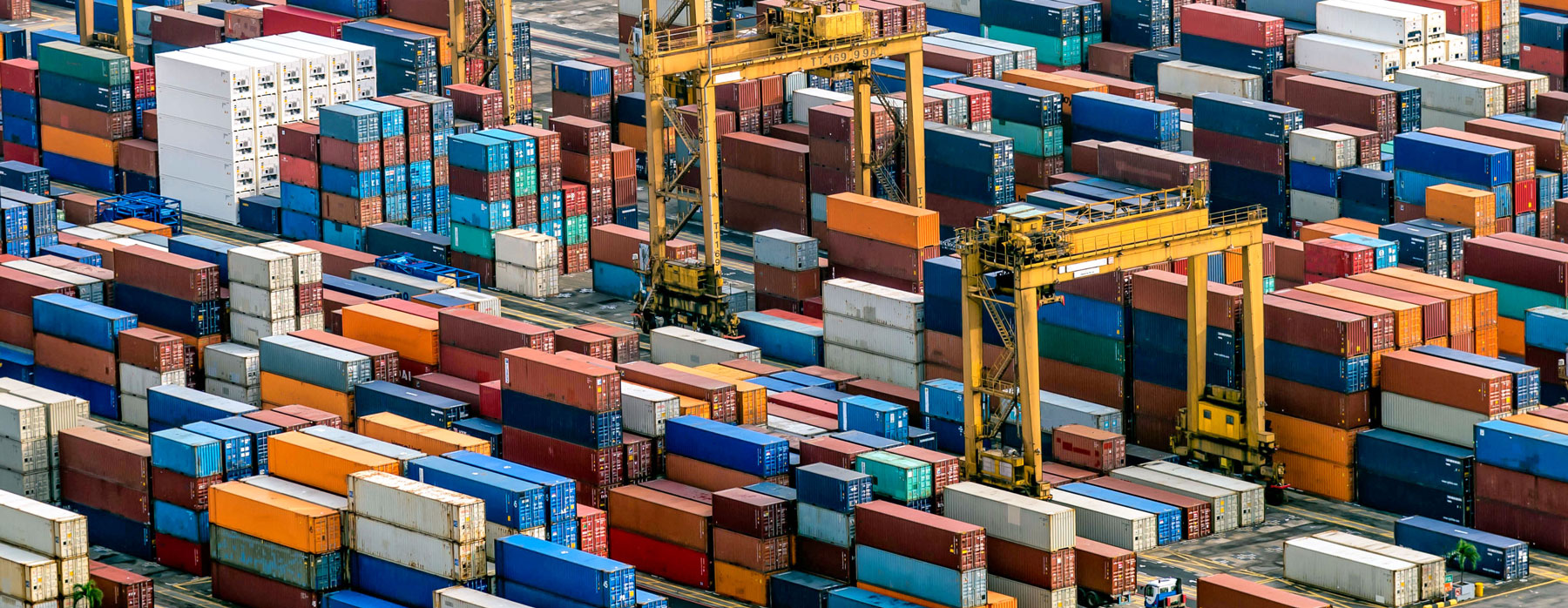KOF Globalisation Index: the Netherlands overtakes Switzerland as the most globalised country in the world
International trade disputes caused a slight decline in globalisation in 2019. The most globalised countries in the world remain Switzerland, the Netherlands and Belgium, with the Netherlands replacing Switzerland at the top of the rankings. The latest KOF Globalisation Index does not yet include the effects of the coronavirus crisis.

Economic globalisation declined slightly in 2019. The trade dispute between China and the United States acted as a decisive influencing factor. In the United States it led to higher costs for manufacturers, higher prices for consumers and financial difficulties for farmers. In China the trade dispute contributed to a slowdown in economic and industrial output growth, which was already declining. The economic environment for the globalisation of world trade therefore deteriorated in particular.
Negotiations over the UK’s exit from the EU in 2019 (completed in January 2020) are also likely to have had an adverse impact on economic globalisation. The full impact of Brexit should be more apparent in the next version of the Index for 2020. However, globalisation is supported by the increase in international financial interconnectedness. The levels of external debt of low- and middle-income countries and foreign direct investment remained similar year on year. The synchronous downturn in the global economy therefore means that these factors account for a larger share of gross domestic product.
Social globalisation has decreased somewhat. In particular, the degree of interpersonal globalisation, i.e. the degree of cross-border personal contacts, has declined. The degree of political globalisation was slightly higher than in the previous year. The number of embassies and NGOs has thus increased recently.
Country overview
The most globalised countries in the world continue to be the trio of Switzerland, the Netherlands and Belgium. In contrast to the last two years, the Netherlands is this year’s leader, replacing Switzerland in this position. The differences between the three leading countries in recent years have been minimal. All three countries have high foreign trade ratios and strong financial sectors. The three countries play a significant role politically and are therefore a focal point for many international non-governmental organisations and institutions. The Netherlands is particularly characterised by a very high degree of economic globalisation. Firstly, this is due to its role in the trade of goods via the ports of Rotterdam, where most goods in Europe are shipped. And, secondly, the Netherlands, like Switzerland, is a financially attractive location for companies and the financial sector. Brexit is also likely to have given a boost to the Netherlands to the detriment of the UK.
Outlook for the future
As the index data only extends to 2019, the impact of the coronavirus crisis that emerged in 2020 is not yet included in the latest KOF Globalisation Index. Generally, however, KOF expects to see a decline in international trade during the coronavirus pandemic. “We expect to see economic activity dip during the COVID-19 pandemic year of 2020 in particular. We also saw a decline in trade during the financial crisis. The crucial question is what happens afterwards,” said KOF Director Jan-Egbert Sturm.
Methodology
The KOF Globalisation Index measures the economic, social and political dimensions of globalisation. It is used to monitor changes in the degree of globalisation of countries over a long period of time. The latest KOF Globalisation Index is available for 195 countries and the period 1970 to 2019. The index distinguishes between de facto and de jure globalisation in the overall index and in its economic, social and political components. The index measures globalisation on a scale of 1 to 100, and the values of the underlying variables are divided into percentiles. 42 different variables are used and are aggregated using statistically determined weights (principal component analysis).
The sub-segment of economic globalisation comprises trade flows on the one hand and financial flows on the other. De facto trade globalisation is determined on the basis of trade in goods and services. De jure trade globalisation includes tariffs, taxes and trade restrictions. De facto financial globalisation includes foreign investment in various categories. De jure financial globalisation includes investment restrictions, capital account openness, and international investment agreements.
The sub-segment of social globalisation comprises personal contacts, information flows and cultural globalisation. A distinction is made between de facto and de jure for each of these areas. Personal contacts are measured in the de facto sphere by international telephone connections, tourism flows and migration, and in the de jure sphere by telephone subscriptions, international airports and visa restrictions. De facto information flows are measured by international patent applications, international students, and high-technology trade. De jure flows are measured by access to television and the internet, press freedom, and international internet connections. De facto cultural globalisation consists of trade in cultural goods, registrations of international trademark rights, and the numbers of McDonalds restaurants and IKEA stores. The de jure sphere is measured by civil rights, gender equality and educational attainment.
The de facto political globalisation sub-segment is determined by the number of embassies, international non-governmental organisations (NGOs) and participation in UN peacekeeping missions. The de jure sphere includes variables on membership of international organisations and international treaties.
Contact
KOF FB Konjunktur
Leonhardstrasse 21
8092
Zürich
Switzerland
